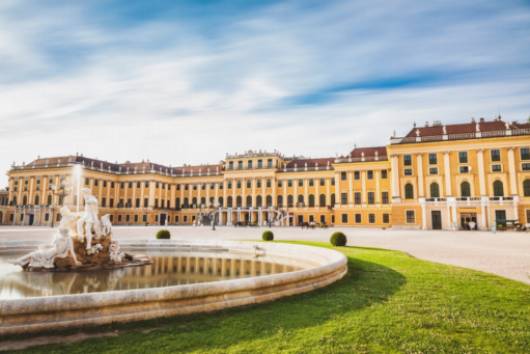During the late 18th and early 19th centuries, Vienna was the epicenter of a musical revolution that would forever change the course of classical music history. At the forefront of this movement were three musical giants - Haydn, Mozart, and Beethoven. Each of these composers played a crucial role in shaping the Viennese musical scene, leaving behind a lasting legacy that continues to inspire and captivate audiences around the world. Let us delve into the golden age of Viennese Classical music and explore the unparalleled contributions of these masterful composers.

Mozart's Impact on the Viennese Musical Scene
Arriving in Vienna in 1781, Mozart quickly established himself as a prominent composer and performer, captivating audiences with his unparalleled talent and innovation in music.
Mozart's compositions showcased his mastery of various musical forms, including symphonies, operas, chamber music, and concertos. His operas, such as "The Marriage of Figaro," "Don Giovanni," and "The Magic Flute," were particularly influential in shaping the Viennese opera tradition and setting new standards for dramatic storytelling and musical complexity.
Moreover, Mozart's piano concertos and symphonies demonstrated his unique ability to blend technical virtuosity with emotional depth, pushing the boundaries of classical music and inspiring future generations of composers. His Symphony No. 40 in G minor and Piano Concerto No. 23 in A major are just a few examples of Mozart's iconic works that continue to be celebrated and performed worldwide.
In addition to his compositions, Mozart's presence in the Viennese musical scene as a performer and teacher also left a lasting impact. His performances at private concerts and public events captivated audiences with his virtuosic piano playing and improvisational skills, earning him widespread acclaim as a musical prodigy.
Overall, Mozart's contributions to the Viennese musical scene were immense, solidifying his legacy as one of the greatest composers of the Classical era and shaping the future of music in Vienna and beyond. His innovative approach to composition, dramatic storytelling, and technical prowess continue to inspire musicians and audiences alike, demonstrating the enduring influence of Mozart on the world of classical music.
Beethoven's Revolutionary Symphonies in Vienna
Ludwig van Beethoven's symphonies are considered some of the most revolutionary works in the history of classical music. During his time in Vienna, Beethoven composed a series of symphonies that pushed the boundaries of traditional symphonic form and structure.
Beethoven's Symphony No. 3 in E-flat major, also known as the "Eroica," marked a significant departure from the classical symphonies of his predecessors. This symphony was longer and more emotionally powerful, with a bold and dynamic use of thematic material. The "Eroica" was dedicated to Napoleon Bonaparte, although Beethoven later retracted this dedication out of disillusionment with the French leader.
Following the "Eroica," Beethoven composed his Symphony No. 5 in C minor, one of the most famous and iconic symphonies in the classical repertoire. The symphony opens with the famous "fate knocking at the door" motif, a motif that is developed and expanded throughout the symphony to create a sense of tension and drama.
Beethoven's Symphony No. 9 in D minor, also known as the "Choral Symphony," broke new ground by incorporating vocal soloists and a choir into the final movement. This innovative use of voices in a symphony was unprecedented at the time and remains a defining feature of the work.
Overall, Beethoven's symphonies in Vienna were groundbreaking in their scope, complexity, and emotional depth. These works helped to redefine the symphonic form and establish Beethoven as a leading figure in the Viennese classical music scene.
The Legacy of Viennese Classical Music: Haydn, Mozart, Beethoven
The legacy of Viennese classical music is deeply intertwined with the works of three influential composers: Joseph Haydn, Wolfgang Amadeus Mozart, and Ludwig van Beethoven. These three composers, who lived and worked in Vienna during the late 18th and early 19th centuries, have left an indelible mark on the history of music.
Joseph Haydn, known as the "Father of the Symphony" and the "Father of the String Quartet," was instrumental in developing these musical forms during his time in Vienna. His innovative compositions and groundbreaking use of form and structure laid the foundation for future generations of composers.
Wolfgang Amadeus Mozart, considered one of the greatest musical geniuses of all time, was a prolific composer who produced a vast body of work in his short life. His operas, symphonies, and chamber music are celebrated for their beauty, complexity, and emotional depth. Mozart's influence on the Viennese musical scene was profound, shaping the direction of classical music for years to come.
Ludwig van Beethoven, a revolutionary figure in classical music, pushed the boundaries of form and expression with his groundbreaking symphonies, concertos, and sonatas. His innovative use of harmony, rhythm, and structure ushered in the Romantic era of music and continues to inspire musicians and audiences around the world.
Together, Haydn, Mozart, and Beethoven created a golden age of Viennese classical music that continues to captivate listeners today. Their timeless compositions have stood the test of time, remaining essential repertoire for orchestras, chamber ensembles, and solo performers. The legacy of Viennese classical music, as embodied by these three giants of the genre, serves as a testament to the enduring power and beauty of music.
